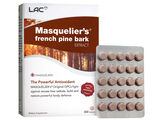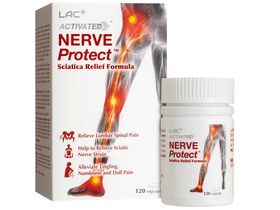Investigating Common Immunity Hearsays

Keeping our immunity strong has become a top-of-mind daily priority for most of us. This pandemic has reminded us of the importance in keeping our immune system in tip-top shape. We’ve come across many common sayings and beliefs when it comes to immune health – in this article, we investigate which ones are true and which aren’t. Read on!
Our immune system plays a vital role in protecting our body against harmful pathogens such as bacteria and viruses that can make us ill. Apart from genetics, other factors such as our diet, lifestyle and the environment can affect our immune system positively or adversely. There are plenty of well-intended hearsays, beliefs and folk remedies in circulation, let’s filter out which hold water, and which don’t.
Immune Facts vs Myths
1. “I was born with good immunity and it will stay this way.”
It’s a myth! Although some are born with a more robust immune system, our immunity also weakens with age1.
As we age, there will be fewer circulating white blood cells and activity, which lowers immune defense, compromising our immune responses when there are infectious invaders2.
2. Sleep has little impact on immunity.
It’s a myth! Rest and sleep are closely linked to a healthy immune system.
Quality and sufficient sleep according to our body’s circadian rhythm helps organs function properly and is important for our well-being.
A study found that participants who slept for less than 6 hours for one week were four times more likely to fall ill, compared to those who got at least 7 hours3.
3. Gargling with warm water or salt & vinegar kills viruses.
It’s yet to be confirmed.
It is a commonly heard remedy to treat sore-throat, and while it does help to provide some soothing relief,
there is still insufficient evidence that gargling with salt water or vinegar is able to eliminate all viruses in the throat or respiratory tract.
4. Gut bacteria are important for a healthy immune system.
It’s a fact! Your gut walls contain up to 80% of cells that make up your immune system. A healthy person carries about 100-300 trillion bacteria in their gut, however, the level of healthy bacteria in our body decreases as we age, and other due to other factors such as diet, stress, and use of medication.
Probiotics are “good bacteria” that help support a healthy digestive system, helping us maintain a healthy balance of microflora in the gut to prevent the growth of harmful bacteria and uncomfortable symptoms.
5. Sunbathing can be good for your immunity.
It’s a fact! We need adequate sunlight for our bodies to naturally produce
Vitamin D.
Sunlight is the primary source of
Vitamin D, as not many foods naturally contain it.
While egg yolks and fish provide
Vitamin D, one will have to eat large amounts of them to meet the daily Vitamin D requirements.
Vitamin D helps keep bones healthy and increases the intestinal absorption of calcium. It also plays an important role in promoting immune response and lowering chances of respiratory tract infection4.
Generally, the recommended sunbathing time is about 10 to 15 minutes a day, or about 30 minutes if you are dark-skinned5 .
6. Exercise does not affect the immune system.
It’s a myth! Regular exercise promotes good immune health as it raises levels of white blood cells, which are the soldiers that fight off infections6.
Besides, exercising has many health benefits, such as improving your moods through the release of endorphins also known as happy hormones.
Regular exercise also contributes greatly towards supporting our overall cardiovascular health.
7. Stress has a negative impact on your immune system.
It’s a fact! Our body releases stress hormones such as cortisol which helps us cope with stress.
However, too much cortisol in the bloodstream can compromise immune response as it reduces the number of white blood cells7.
A person who is experiencing long-term stress may find themselves feeling anxious, depressed along with reduced appetite and insomnia, which affect our body’s healthy functions over time.
It is important to find ways to cope with stress, whether through exercise, meditation, talking, or engaging in your preferred hobbies.
The saying “laughter is the best medicine” rings true as laughing releases dopamine that lifts our mood8.
We hope that you have found this article useful in providing a greater understanding towards our immune system. Keep strong, stay healthy, sleep well, laugh much and exercise regularly! Here’s to LIVING WELL!
References
1 Immune system weakens as we age: https://www.emergenc.com/newsroom/fun-facts-about-the-immune-system/
2Slower immune response: https://www.eatingwell.com/article/7937565/myths-about-immunity-fact-or-fiction/
3Sleep and immunity: https://www.eatingwell.com/article/7937565/myths-about-immunity-fact-or-fiction/
4Vitamin D lowers chances of respiratory track infection: https://www.ncbi.nlm.nih.gov/pmc/articles/PMC3543548/
5Sunlight and Vitamin D: https://www.webmd.com/a-to-z-guides/ss/slideshow-sunlight-health-effects
6xercise and immune health:https://www.the-well.com/editorial/surprising-facts-about-your-immune-system
7Cortisol compromising immunity:https://www.sunshineclinic.org/blog/how-stress-affects-your-immune-system/
8Laughter releases dopamine: https://www.healthline.com/health/cold-flu/fun-facts#Laughter-helps-your-immune-system












-240s-label-Front_1638x1227.jpg?sw=280&sh=210&sm=fit)




